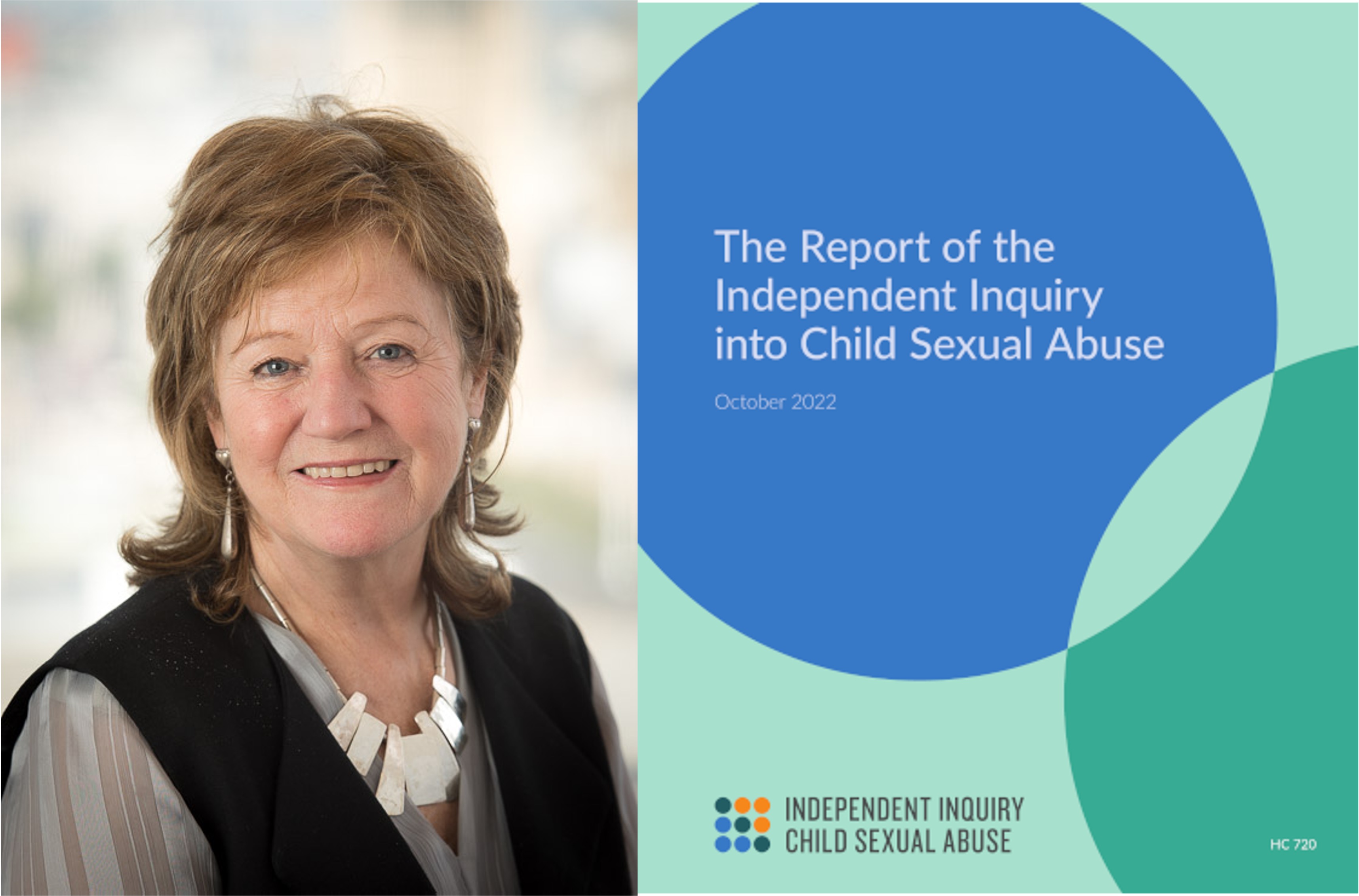This is Blog No 28
The Independent Inquiry on Child Sexual Abuse (IICSA) lasted seven years, heard from 725 witnesses over 300+ public hearing days and considered 4 million pieces of evidence. Last October it produced a comprehensive Report including 20 recommendations, 19 of which the Government says it accepts.

Yet on 24th May, the distinguished and respected Chair of the Inquiry, Professor Alexis Jay OBE goes onto the BBC to condemn the Government’s decision to go to consultation on an important aspect of her recommendations. She expressed her ‘deep disappointment’ and suggested that the Home Secretary thinks again. It is an unusual situation but raises an important issue. If there has been a genuine and exhaustive investigation into a contentious subject, does it make a consultation unnecessary?
Is she right?
One can understand her frustration. You cannot preside over such a mammoth Inquiry and hear the horror-stories of what is, by any measure, a mind-numbing and indefensible scandal without feeling sickened at any delay in strengthening society’s defences against these practices.
One of these is Recommendation 13 – to introduce what is called Mandatory Reporting. This means legislation which places certain individuals – ‘mandated reporters’ – under a statutory duty to report child sexual abuse with criminal penalties if they don’t, something previously consulted upon in 2016 but rejected. Referring to the latest proposal, Professor Jay told BBC’s Women’s Hour programme
“I wonder what the Government thought we were doing over seven years when we carried out extensive research and evidence-taking … We have already done this work and there is no need for it to be repeated.”
Her Report goes into detail. It makes a strong case for mandatory reporting and draws upon published engagement with a variety of stakeholders. We can read about intense debates led by an Australian expert on such details as who exactly should be covered by the duty, and seminars to consider other aspects – though we are not told who attended.
But in her final recommendation there are significant issues left open. For example, to whom should the mandatory report be made? The IICSA recommendation says, “Reports should be made to either local authority children’s social care or the police as soon as is practicable.” This is fair enough, but for many people there is a considerable difference between the two options. Police services have suffered unprecedented reputational damage in recent times. And local authorities have their own problems. The Association of Directors of Children’s Services has already warned that mandatory reporting ‘could overwhelm’ underfunded services and take resources away from a caseload of known and proven allegations. There is a similar dialogue about time-limits.
Now such debates are absolutely legitimate matters for consultation, where those impacted by proposals can voice their views and identify concerns that Government departments should take into account, especially when drafting legislation. Having looked at all 28 substantive questions – covering who the duty should apply to, whether reporting should be on known or suspected cases of abuse, on the sanctions that should apply, the exemptions and other matters – I am personally satisfied that this is an appropriate and professionally conducted consultation.*
So, is Professor Jay wrong to criticise?
I suspect the problem is that when these large wide-ranging Inquiries are set-up (and the Hallett Inquiry into COVID-19 may surpass them all for complexity and consequence) – we may be setting the wrong expectations. Politicians need answers, and preferably in ways where they can be seen to act. The prevailing sense would be that “We’ve given this problem to this member of the great-and-good, who, in time will tell us what to do.”
Unfortunately, it is not always possible to produce neat and tidy solutions that have no implications on the wider responsibilities of Government or on the behaviour of society. There are often consequences that need a dialogue with those not necessarily involved in a particular Inquiry – and especially where everyone urges speed and lengthy investigations are discouraged. Where there are such implications, and where the devil is so often in the detail, a further consultation should be a natural and routine part of the process of policy-making. This ensures that a wider range of stakeholders have an opportunity to comment upon the formal Inquiry’s recommendations. Let the Inquiry determine what should be done, but maybe how is an issue also for some other stakeholders.
Inquiries are good at exploring an issue, and the IICSA has certainly succeeded in this. But to produce a wider consensus and gather support for expensive or controversial legislation requires a different process - one that takes account of the views of those likely to be impacted. And for that, a properly run consultation remains a most effective tool which, in this particular case should help and not hinder Professor Jay’s ultimate goals.
* on a technicality, the exercise is - confusingly a 'call for evidence', leaving open the possibility of a further consultation on legislative proposals - in the light no doubt of the evidence collected in the current process. It is still a consultation and subject to the Government consultation principles. However it may be that the prospect of a protracted consultative period adds to Professor Jay's disquiet. I sympathise.
Leave a Comment
I hope you enjoyed this post. If you would like to, please leave a comment below.